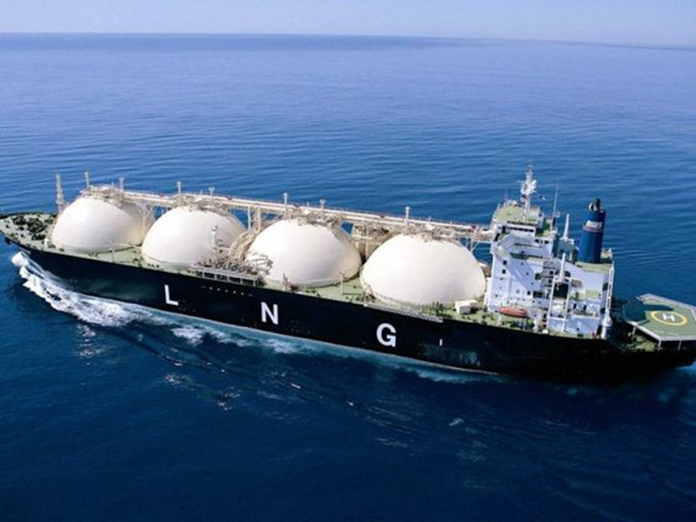Is LNG the best option ?
Utilizing Liquefied Natural Gas (LNG) as a sustainable fuel in the maritime industry presents both complexities and opportunities. While promising emission reductions and efficiency gains make LNG an attractive option, its adoption is not without challenges. The maritime sector faces hurdles such as intricate equipment requirements and concerns about methane slip, emphasizing the need for careful consideration and strategic planning in integrating LNG as a more sustainable fuel.
The shipping industry, traditionally reliant on diesel, is undergoing a transformative shift in response to stringent emissions targets. As stakeholders, including ship owners, governments, and the maritime industry, look to meet evolving environmental standards, the focus is shifting away from diesel toward alternative fuels. Liquid Natural Gas (LNG) has emerged as a prominent solution already in service, offering a cleaner and more sustainable option.
Utilizing Liquefied Natural Gas (LNG) as a sustainable fuel in the maritime industry presents both complexities and opportunities. While promising emission reductions and efficiency gains make LNG an attractive option, its adoption is not without challenges. The maritime sector faces hurdles such as intricate equipment requirements and concerns about methane slip, emphasizing the need for careful consideration and strategic planning in integrating LNG as a more sustainable fuel.
The shipping industry, traditionally reliant on diesel, is undergoing a transformative shift in response to stringent emissions targets. As stakeholders, including ship owners, governments, and the maritime industry, look to meet evolving environmental standards, the focus is shifting away from diesel toward alternative fuels. Liquid Natural Gas (LNG) has emerged as a prominent solution already in service, offering a cleaner and more sustainable option.
Utilizing Liquefied Natural Gas (LNG) as a sustainable fuel in the maritime industry presents both complexities and opportunities. While promising emission reductions and efficiency gains make LNG an attractive option, its adoption is not without challenges. The maritime sector faces hurdles such as intricate equipment requirements and concerns about methane slip, emphasizing the need for careful consideration and strategic planning in integrating LNG as a more sustainable fuel.
The shipping industry, traditionally reliant on diesel, is undergoing a transformative shift in response to stringent emissions targets. As stakeholders, including ship owners, governments, and the maritime industry, look to meet evolving environmental standards, the focus is shifting away from diesel toward alternative fuels. Liquid Natural Gas (LNG) has emerged as a prominent solution already in service, offering a cleaner and more sustainable option.

Image credit: marineinsight
As the industry sets its sights on the International Maritime Organization’s (IMO) 2050 goals and beyond, a spectrum of fuels is being considered to replace diesel and propel the sector towards a net-zero future. Ammonia, methanol, and hydrogen are among the potential candidates. However, achieving net-zero fuels poses challenges, including refining production techniques, managing costs, and establishing suitable storage and infrastructure. In navigating these hurdles, the maritime sector is turning to LNG as a noteworthy interim solution.
LNG’s appeal lies in its immediate environmental benefits. As a cleaner alternative, it addresses current emission concerns, positioning itself as a pragmatic choice for the industry’s transition phase. The challenges associated with achieving net-zero fuels, such as technological advancements, costs, and infrastructure development, make LNG a practical and feasible option in the interim.
In essence, LNG is stepping into the spotlight as a transitional fuel, facilitating a smoother and more immediate response to emission reduction goals. While acknowledging the hurdles on the path to net-zero, the maritime industry is leveraging the advantages of LNG, recognizing its role in meeting current environmental objectives and providing a bridge towards a more sustainable future.
The future for LNG
The future of Liquid Natural Gas (LNG) in the maritime industry is poised as an interim solution, bridging the transition towards more sustainable shipping practices. While potential increases in costs and challenges related to storage and infrastructure pose hurdles, LNG offers significant benefits for many ship owners and operators.

Image credit: Bussinessinsider
LNG stands out as a cleaner and safer alternative to traditional fossil fuels, delivering notable reductions in emissions. In some aspects, it proves to be a more efficient option, offering enhanced safety features and demonstrating a more favorable economic landscape compared to anticipated future fuels. Its cost-effectiveness, at least in the short term, positions LNG as a valuable player in the maritime industry’s ongoing efforts to curtail environmental impact.
However, the downsides, including infrastructure complexities and storage challenges, signify that LNG is likely to remain a temporary solution. Future articles in this series are set to explore alternative fuels such as ammonia, methanol, and hydrogen, reflecting the industry’s trajectory towards long-term sustainable practices. Despite its temporary nature, LNG is expected to play an increasingly crucial role, providing a pragmatic and effective means for the maritime sector to meet immediate environmental objectives.
Memon Faizal
Junior Engineer




